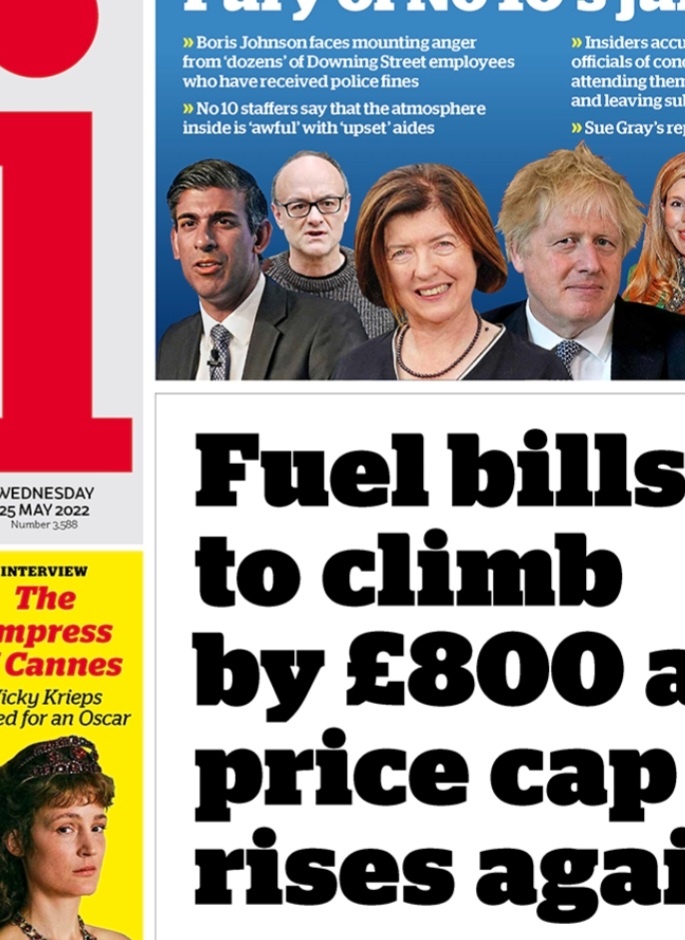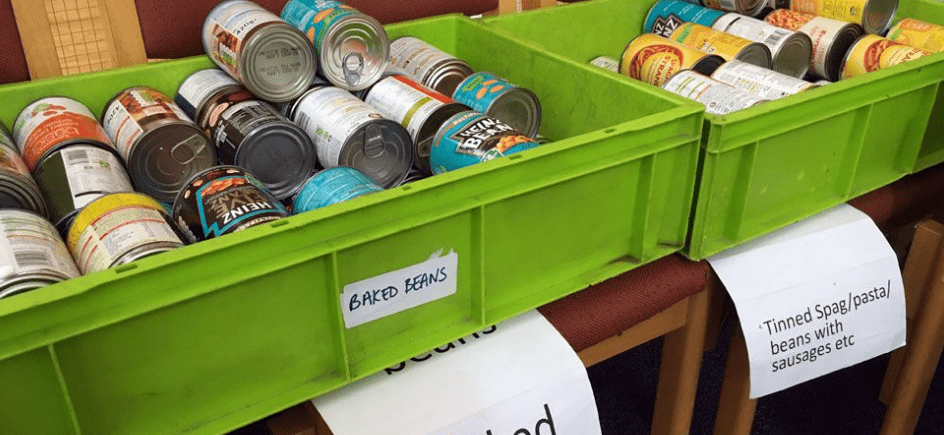Having an employer organise a food bank for its own workers is a crushing indictment of the society in which we live and is a confirmation, if we ever needed one, that the fundamental economic strategy of this Tory government is based on having a low wage economy.
The BBC reported two days ago that the Norfolk and Suffolk NHS Foundation Trust had set up its own food bank because of fears that its staff are struggling with price rises. Other trusts in the East of England, the BBC reports, are doing the same thing. So instead of paying its overworked and understaffed workers a decent living wage – these being key workers who were clapped every week during the pandemic – for these trusts their first recourse is the humiliating experience of charitable hand-outs.

Workers and their families are facing a crisis in prices – with energy, food and rents shooting up at a rate unprecedented in forty years – but that is exacerbated by a crisis in PAY, leaving most workers with no way of absorbing price hikes.
When the National Minimum Wage was introduced in 1999, it covered just over a million adults. That number jumped to one and a half million by 2015 and around two million today.
Today most of the poor are working poor
For some sectors of the economy, the ‘minimum’ has become the ‘norm’ but when workers are forced into industrial action to defend their living standards, they are demonized by the Tories and the press. Whereas in the 1930s – a period noted for low living standards – it was the unemployed who were the main victims of poverty, today it is the employed, the working poor.
Food banks are proliferating right across Britain. The Trussell Trust, which organises 1,200 food banks, provided over two million food parcels in the last year, a 14% increase on the previous year. Large numbers using their food banks, they report, are in work, but simply unable to make ends meet.
Now, after the revelation last week that inflation is officially running at 9 per cent – it is a lot higher than that for lower-income families – the latest dramatic twist is the suggestion by the Chief Executive of Ofgem that energy prices will rise for the average household by at least a further £800 a year in October. According to the boss of E.ON, one of the biggest energy companies, 40% of households could be driven into ‘energy poverty’ by October and next Winter millions will choose between eating and heating.

The Resolution Foundation thinktank has estimated that as many as 5 million families are already in fuel poverty, and they reckon the October increases will add another nine million to those, meaning that “up to three-quarters of families could fall into fuel stress.”.
Rebecca Long Bailey, the Shadow Minister sacked by Keir Starmer, noted that the Tories have no answer to this crisis. “There were 38 bills in the Queen’s Speech”, she said, “but nothing at all to address the growing and brutal cost of living crisis and that’s absolutely staggering [when] we’ve got millions of people skipping meals every day.”
We can expect nothing different from the Tory government. Their sudden conversion to a ‘windfall tax’ on oil and energy companies is a limited attempt to mitigate the rage that is building up against this government. It is extremely limited, despite the great hype around the announcement, because it only slightly decreases the impact of energy prices on households and it is vaguely aimed (like so much Tory ‘support’) at the least-well off. It will make no substantial difference.
What the windfall tax announcement has done, however, is to take the wind out of Keir Starmer’s sails. Instead of arguing for the renationalisation of energy utilities – in line with Labour conference and a majority of public opinion – he has limited his demands to a suggestion so meek that even the Tories have taken it on board.
Militant and far-reaching industrial action
It is the responsibility of the whole labour movement to support all those engaged against the Tories and the bosses in defence of living standards. That must mean above all a whole-hearted defence of unions like UNITE and the RMT, which are prepared to take militant and far-reaching industrial action to defend the buying power of their members’ pay.
Their example should be followed by all the trade unions. It is good that the TUC is organising a national march and rally in London on June 18, on the theme ‘we demand better’ but in the final analysis it is militant industrial action that will defend jobs and wages – precisely what was absent over the P&O sackings – not just angry words.
But it is on the political plane too that the labour movement could make a difference. If the Labour Party had a leadership worthy of the name, they would be leading the charge in defence of living standards, instead of playing pat-a-cake with the Tories in the House of Commons. The natural instinct of the big majority of Labour members is to support workers in struggle over wages and jobs, but like Neil Kinnock during the great 1984-85 miners’ strike, the current leadership keeps a deafening silence on strikes and industrial action.
Commenting on the establishment of food banks by the Norfolk and Suffolk Health Trust, the regional organiser of Unison correctly said that it was a “truly sad indictment of the state of our society and our NHS”
“It should come as a shock”, he added, “that health staff working in the fifth richest country in the world need food parcels to survive, but this is the natural result of a decade of austerity eating away at wage levels…”

What might also come as a shock, especially, to low-paid members of Unison, like those forced to go to food banks, is that Unison is one of the principal political supporters of Keir Starmer, a man who has set himself against a £15 an hour national minimum, despite support for it at TUC and Labour conferences.
Building up a mountain of anger and discontentment
Where once the most impoverished part of the population constituted perhaps a sixth or a seventh of the total, that proportion is growing with each passing year. Mortgages, rents, food, energy, transport – all of these are soaring away from the ability of ordinary families to manage them. Meanwhile, pay is more or less frozen.
Britain’s is a low-wage economy and this unprecedented squeeze on living standards, is building up a mountain of anger and hurt and it will not all be bottled up until the next election. It is only a matter of time before some spark or incidental episode lights the bonfire. Police chiefs have warned about the potential rise in crime as a result of the general impoverishment of the population. Others, including a former top Met officer, have warned that the cost of living crisis will lead specifically to an “increase in youth violence”.
In the first years of the Thatcher government, in 1980-81, there were riots and disorder in several inner cities in Britain. Such events are an expression of desperation and despair, not of a reasoned political response, and if they are repeated, they will face an unparalleled degree of repression by the forces of the state.
But as long as there is no legitimate outlet for discontent over the ongoing collapse in living standards and the growing impoverishment and insecurity of everyday life, and if workers and youth are blocked by a corrupt and self-serving government, then such upheavals are more than just a possibility – they are an inevitability.



